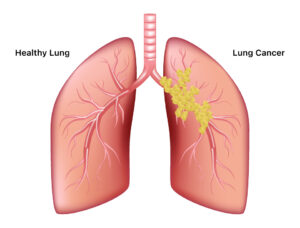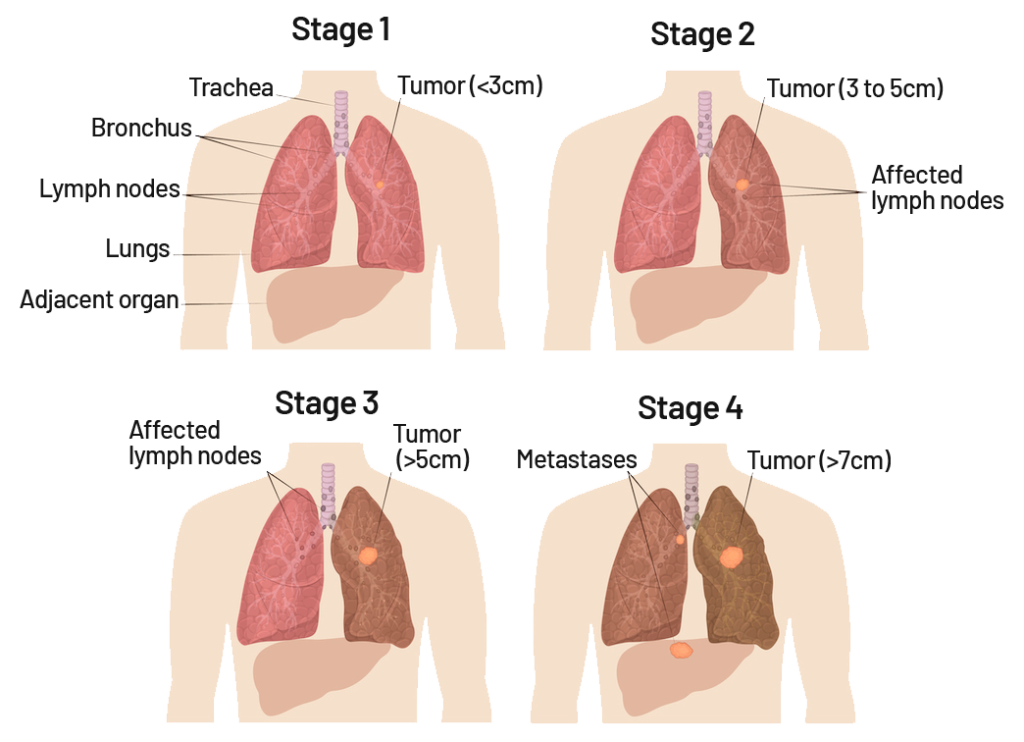- Home
- About Us
- Doctors
- Specialties
- Bariatric Surgery
- Bone Marrow Transplant
- Cancer
- Cardiology
- Cardiovascular And Thoracic Surgery
- Critical Care Medicine
- Dental Surgery
- Dermatology & Cosmetology
- Diabetic Foot Care
- Ear, Nose & Throat
- Endocrinology
- Fetal Medicines
- Gastroenterology
- General Medicine
- General Surgery
- HPB & Gastrointestinal Surgery
- Interventional Radiology
- IVF
- Kidney Transplant
- Laparoscopic Surgery
- Liver Transplant
- Medical And Hemato Oncology
- Neurology
- Neuro & Spine Surgery
- Nephrology And Dialysis
- Nuclear Medicine
- Orthopedic
- Ophthalmology
- Obstetrics And Gynecology
- Pathology Laboratory
- Pediatric
- Peripheral Vascular And Endovascular Surgery
- Physiotherapy and Rehabilitation
- Plastic Reconstruction
- Plastic & Cosmetic Surgery
- Pulmonary Medicine
- Radiation Oncology
- Radiology
- Robotic Surgery
- Surgical Oncology
- Urology
- Facilities
- Patient Area
- Testimonials
- Media
- Contact Us
Lung Cancer
Breathe for Wellness: Bridging Tomorrow's Health, One Breath at a Time
At Universal Hospital, our specialized team of pulmonologists, medical oncologists, thoracic surgeons, radiologists, and support staff is dedicated to providing comprehensive and personalized care for individuals facing lung cancer. Lung cancer is a type of cancer that starts in the lungs, typically in the cells lining the air passages. It is one of the most common cancers globally and is often associated with smoking.
What is Lung Cancer?
Lung cancer is a malignant tumor that originates in the cells of the lungs. It is characterized by uncontrolled cell growth and division, leading to the formation of a mass or tumor. Lung cancer can occur in any part of the lungs and may be categorized into two main types: non-small cell lung cancer (NSCLC) and small cell lung cancer (SCLC). Smoking is the leading cause of lung cancer, but exposure to other carcinogens, genetic factors, and environmental influences can also contribute to its development. Symptoms may include persistent cough, chest pain, shortness of breath, and weight loss. The prognosis and treatment options for lung cancer depend on factors such as the type, stage, and overall health of the patient. Early detection and intervention are crucial for improving outcomes in lung cancer cases.
Types of Lung Cancer:
There are two main types of lung cancer, based on how the cancer cells look under a microscope:
- Non-Small Cell Lung Cancer (NSCLC): This is the most common type, accounting for about 85% of lung cancers. NSCLC includes subtypes such as adenocarcinoma, squamous cell carcinoma, and large cell carcinoma.
- Small Cell Lung Cancer (SCLC): This type tends to grow more quickly and is often associated with smoking.
Risk Factors:
Several factors may increase the risk of developing lung cancer, including:
- Tobacco Smoke: Smoking is the leading cause of lung cancer.
- Secondhand Smoke: Exposure to smoke from other people’s cigarettes.
- Radon Gas: A colorless, odorless gas that can seep into homes.
- Asbestos Exposure: Especially in people who smoke.
- Air Pollution: Long-term exposure to high levels of air pollution.

Symptoms:
Lung cancer may not cause symptoms in its early stages. As the cancer progresses, symptoms may include:
- Persistent cough
- Chest pain
- Shortness of breath
- Unexplained weight loss
- Fatigue
- Hoarseness

Staging:
Lung cancer is staged to determine the extent of the disease. Stages range from I (early) to IV (advanced).
- Stage I (I):
- T1: Tumor is 3 cm or smaller and is confined to the lung.
- No regional lymph node involvement (N0).
- No distant metastasis (M0).
- Stage II (II):
- T2: Tumor is larger than 3 cm or involves nearby structures.
- Tumor may involve the main bronchus but is still confined to the lung.
- No regional lymph node involvement (N0).
- No distant metastasis (M0).
- Stage III (III):
- T3: Tumor is larger or involves chest wall, diaphragm, mediastinal pleura, or main bronchus.
- T4: Tumor invades nearby structures like the heart, large blood vessels, trachea, esophagus, or spine.
- May involve regional lymph nodes (N1-N3).
- No distant metastasis (M0).
- Stage IV (IV):
- Tumor of any size.
- May involve regional lymph nodes.
- Distant metastasis present (M1).
Diagnosis:
- Imaging Tests: Chest X-rays, CT scans, and PET scans can help visualize abnormalities in the lungs.
- Biopsy: Removal of a small sample of tissue for examination under a microscope.
- Sputum Cytology: Examination of mucus coughed up from the lungs.
Treatment:
Treatment for lung cancer depends on the type, stage, and the patient’s overall health and may include:
- Surgery: Removal of the tumor or the affected lung.
- Radiation Therapy: High-dose radiation to target and kill cancer cells.
- Chemotherapy: Medications to kill or control the growth of cancer cells.
- Targeted Therapy: Medications that target specific molecules involved in cancer growth.
- Immunotherapy: Stimulating the body’s immune system to attack cancer cells.
Prevention:
- Quit Smoking: The most effective way to reduce lung cancer risk.
- Avoid Secondhand Smoke: Limit exposure to environments with secondhand smoke.
- Radon Testing: Test homes for radon and mitigate if levels are high.
- Protect Against Workplace Carcinogens: Follow safety guidelines in workplaces with carcinogenic exposure.
Prognosis:
The prognosis for lung cancer varies depending on the type, stage, and the effectiveness of treatment. Early detection can improve outcomes.
Support and Resources:
Living with lung cancer may require support. Patients and their families can benefit from support groups, counseling, and educational resources provided by healthcare organizations.
Lung Cancer Care at Universal Hospital:
1. Multidisciplinary Lung Cancer Team:
Our hospital is equipped with a multidisciplinary team of experts who collaborate to provide a comprehensive approach to lung cancer care. This team includes pulmonologists, medical oncologists, thoracic surgeons, radiation oncologists, radiologists, and support staff.
2. Advanced Diagnostic Technologies:
Universal Hospital employs state-of-the-art diagnostic technologies, including CT scans, PET scans, bronchoscopy, and biopsy procedures, to accurately diagnose and stage lung cancer.
3. Personalized Treatment Plans:
Treatment plans are tailored to each patient’s specific diagnosis, considering factors such as the type and stage of lung cancer, tumor size, location, and the patient’s overall health. Our goal is to provide the most effective and personalized care for every individual.





